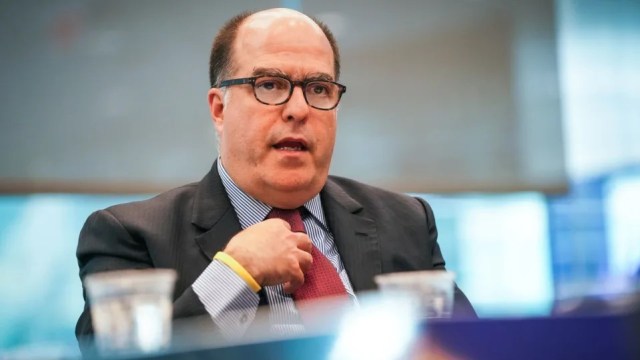
Dozens of Venezuelan opposition figures, who turned Colombia into their unofficial headquarters in recent years, say the election of Gustavo Petro as Colombia’s first leftist president puts them at risk, and they plan to leave.
By Yahoo Finance – Patricia Laya, Ezra Fieser and Andreina Itriago Acosta
Jul 5, 2022
Activists, party leaders, former officers and military deserters are making the move, according to seven people with knowledge of the plans. They’re afraid they’ll be harassed, spied on or even kidnapped. Petro takes office in a month, replacing conservative Iván Duque, an outspoken opponent of Nicolás Maduro.
In a recent interview with El Pais newspaper, Petro said Venezuelan activists and journalists in Colombia would not face extradition under him. But his broader plans for them are unclear. Alvaro Leyva, the incoming foreign minister chosen by Petro, did not respond to messages seeking comment.
Ronal Rodríguez, a researcher at the Venezuelan Observatory at Rosario University in Bogotá, said the opposition has had direct access to the highest levels of the government, helping shape policy toward Venezuela. That will change under Petro who, he says, needs to take steps to protect persecuted Venezuelans.
The most prominent Venezuelan opposition figure looking for exit options is former National Assembly President Julio Borges, 52, who founded the Justice First party and has been in Bogota for more than four years.
The Caracas government issued an arrest warrant for him, accusing him of masterminding an explosive drone attack targeting Maduro. Another opposition lawmaker accused alongside him, Juan Requesens, is under house arrest in Caracas.
In Bogota, Borges bikes to meetings and takes walks in the park, a stark change from Caracas, where he was derided by Maduro officials and rode in bulletproof vehicles escorted by bodyguards. According to people who know him, he fears that once Petro is in office, he will face new threats. He didn’t respond to a request for comment.
Another key figure also looking to leave is Carlos Paparoni, a 33-year-old Venezuelan lawmaker who led several investigations into corruption and organized crime tied to the Maduro regime. He declined to comment.
While such prominent politicians are seeking political asylum or jobs in Miami, Washington or Madrid, most of the others — mid-level activists and army deserters — face more desperate choices.
Former student leader Parada, for example, says he’s planning to cross the Darien Gap, the dense and dangerous jungle between Colombia and Panama, on foot. So is Army Captain Anyelo Heredia, 38, who escaped Venezuela’s military prison of Ramo Verde in 2019 facing treason charges.
“The most delicate situation is for the young people who don’t have the resources to leave Colombia,” said Heredia.
Rodriguez, the analyst, agreed. “They had roles in councils or municipalities in Caracas or other cities and they are the ones, perhaps, that are more at risk because there are orders for them from the Venezuelan justice system,” he said.
In reversing course on Venezuela, Petro will move Colombia’s policy closer to that of other countries in Latin America, leaving the US with few allies in the region in its effort to isolate Maduro. The Trump administration backed Juan Guaido as interim president while using a pressure campaign and sanctions in an attempt to oust Maduro.
But with that tactic unsuccessful and Guaido marginalized, several countries have moved to re-engage with Maduro, said Mark Feierstein, senior adviser at Washington-based Albright Stonebridge Group and a former senior director of the National Security Council.
“They are recognizing the reality that Maduro may be unsavory but he’s the person they need to deal with,” Feierstein said. “I don’t think it will be all that unsettling to the US if Colombia makes a similar move.”
The Biden administration, looking for new sources of oil following the Russian invasion of Ukraine, has begun talks with Maduro officials that could lead to the easing of some tough US sanctions.
Even after Petro re-establishes ties with Maduro, Colombia can still work in concert with the US to encourage Venezuela to hold open presidential elections in 2024, Feierstein said. “If Colombia uses different channels, but with a similar goal, that’s helpful as well,” he said.
Eduardo Battistini, a 39-year-old former councilman, has represented the Guaido alternative government in Bogota since 2020, when he fled the country following threats and months of hiding in México’s embassy in Caracas. He hasn’t been able to access the nation’s consulate, which lies vandalized alongside one of Bogota’s busiest highways.
While he serves the largest community of Venezuelans outside their homeland, at nearly two million, Battistini lacks the resources to offer them passports or ID cards, something Petro has promised to restore with renewed relations with Maduro. Still, with Duque’s blessing, his team has been able to validate thousands of degrees for Venezuelans looking to work in Colombia.
“We cannot abandon these people,” said Battistini, who has no immediate plans to leave. “As long as I can be useful here, I will be.”
…
Read More: Yahoo Finance – Maduro’s enemies are fleeing Colombia as persecution fears mount
…

